Jordi Savall - Johann Sebastian Bach: Messe En Si Mineur BWV 232 (2013) [CD Rip]
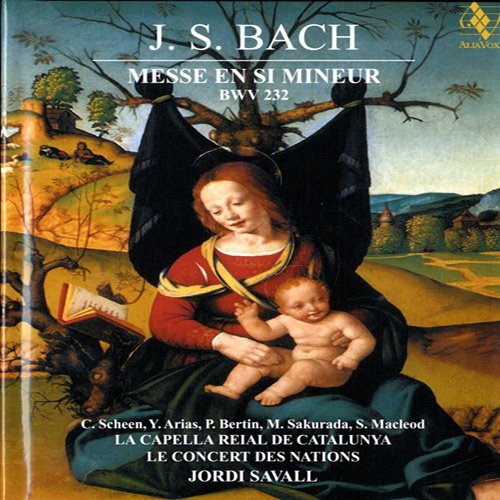
Artist: Jordi Savall
Title: Johann Sebastian Bach: Messe En Si Mineur BWV 232
Year Of Release: 2013
Label: Alia Vox
Genre: Classical
Quality: FLAC (tracks + .cue, log, artwork)
Total Time: 01:42:24
Total Size: 614 MB
WebSite: Album Preview
Tracklist:Title: Johann Sebastian Bach: Messe En Si Mineur BWV 232
Year Of Release: 2013
Label: Alia Vox
Genre: Classical
Quality: FLAC (tracks + .cue, log, artwork)
Total Time: 01:42:24
Total Size: 614 MB
WebSite: Album Preview
CD 1
01. Kyrie eleison - Coro a 5 (tutti)
02. Christe eleison - Duetto (soprano I & II)
03. Kyrie eleison - Coro a 4 (tutti)
04. Gloria in excelsis Deo - Coro a 5 (tutti)
05. Et in terra pax - Coro a 5 (tutti)
06. Laudamus te, benedicimus te - Aria (soprano II)
07. Gratias agimus tibi - Coro a 4 (tutti)
08. Domine Deus, Rex coelestis - Duetto (soprano I & tenore)
09. Qui tollis peccata mundi - Quartetto (soli)
10. Qui sedes ad dexteram Patris - Aria (alto)
11. Quoniam tu solus sanctus - Aria (basso)
12. Cum Sancto Spiritu - Coro a 5 (tutti)
CD 2
01. Credo in unum Deum - Quintetto (soli)
02. Patrem omnipotentem - Coro a 4 (tutti)
03. Et unum Dominum - Duetto (soprano I & alto)
04. Et incarnatus est - Quintetto (soli)
05. Crucifixus etiam pro nobis - Coro a 4 (tutti)
06. Et resurrexit tertia die - Coro a 5 (tutti)
07. Et in Spiritum sanctum - Aria (baritono)
08. Confiteor unum baptisma - Quintetto (soli)
09. Et expecto resurrectionem mortuorum - Coro a 5 (tutti)
10. Sanctus, sanctus - Coro a 6 (tutti)
11. Osanna in excelsis - Doppio coro a 8 (tutti)
12. Benedictus qui venit in nomine Domini - Aria (tenore)
13. Osanna in excelsis - Doppio coro a 8 (tutti)
14. Agnus Dei qui tollis peccata mundi - Aria (alto)
15. Dona nobis pacem - Coro a 4 (tutti)
Jordi Savall is among the leading instrumentalists and conductors of the European early music scene, specializing in Renaissance, Baroque, and Medieval music. He took an interest in early music, and began learning the viola da gamba. He studied the gamba and early music research and practice with Wieland Kuijken in Brussels and August Wenzinger at the Schola Cantorum Basiliensis in Basel.
In 1968, Savall married the soprano Montserrat Figueras, who shared his interest in early music. With Figueras and other musicians interested in early Spanish music, he founded the ensemble Hespèrion XX in 1974. The ensemble took its name from an ancient name for the Western European region from Italy to Iberia. At the turn of the 21st century, the group changed its name to Hespèrion XXI.
Savall and Hespèrion XX quickly became well known in early music circles. They created a unique sound through the use of viols and other Medieval instruments such as the psaltery, wooden flutes, Moroccan drums, and the Afghan rebec (a double-reed ancestor of the oboe).
Savall became internationally known through his playing on the soundtrack of Alain Corneau's film Tous les Matins du Monde (All the Mornings of the World), concerning the French viol players of the Baroque era. He also founded La Capella Reial de Catalunya in 1987, an ensemble of instrumentalists and vocal soloists.
Savall has recorded well over 150 albums. In 1996, he introduced his own AliaVox label with a disc of Juan Cabanilles that has served as the platform for his recordings ever since. Savall has also taken advantage of his celebrity through traveling as a touring artist throughout the world with all three of his actively performing groups. His honors include an honorary doctorate from the University of Barcelona (2000) and multiple Grammy nominations, and in 2008 UNESCO recognized Savall and Figueras as "Artists for Peace."
Freed from the constraints of external-label finances, Savall's productivity, always high, has increased still further. He was featured on as many as nine albums a year in the early 2000s and has slowed only slightly since he entered his eighth decade of life in 2011. AliaVox, generously funded by Catalonian governmental and private sources, became known for sumptuous releases, with booklets hundreds of pages long in as many as six languages, describing not only the music being performed, but a deep cultural context as well.
La Sublime Porte: Voix d'Istanbul 1400-1800Savall has ventured beyond the realm of Western music on such releases as La Sublime Porte: Vox d'Istanbul, 1400-1800. Some of his recordings continue to explore specific Baroque and Renaissance repertories, but just as often, as on 2012's Jeanne d'Arc: Batailles & Prisons, he attempts to construct a musical background for historical personages and events, and to explore the connections among music, wider culture, and history. In 2017, Savall and La Capella Reial de Catalunya issued a recording devoted to the music of Heinrich Isaac in relation to the leading political figures of his time, Lorenzo de' Medici and the Austrian emperor Maximilian I. -- Rovi Staff
In 1968, Savall married the soprano Montserrat Figueras, who shared his interest in early music. With Figueras and other musicians interested in early Spanish music, he founded the ensemble Hespèrion XX in 1974. The ensemble took its name from an ancient name for the Western European region from Italy to Iberia. At the turn of the 21st century, the group changed its name to Hespèrion XXI.
Savall and Hespèrion XX quickly became well known in early music circles. They created a unique sound through the use of viols and other Medieval instruments such as the psaltery, wooden flutes, Moroccan drums, and the Afghan rebec (a double-reed ancestor of the oboe).
Savall became internationally known through his playing on the soundtrack of Alain Corneau's film Tous les Matins du Monde (All the Mornings of the World), concerning the French viol players of the Baroque era. He also founded La Capella Reial de Catalunya in 1987, an ensemble of instrumentalists and vocal soloists.
Savall has recorded well over 150 albums. In 1996, he introduced his own AliaVox label with a disc of Juan Cabanilles that has served as the platform for his recordings ever since. Savall has also taken advantage of his celebrity through traveling as a touring artist throughout the world with all three of his actively performing groups. His honors include an honorary doctorate from the University of Barcelona (2000) and multiple Grammy nominations, and in 2008 UNESCO recognized Savall and Figueras as "Artists for Peace."
Freed from the constraints of external-label finances, Savall's productivity, always high, has increased still further. He was featured on as many as nine albums a year in the early 2000s and has slowed only slightly since he entered his eighth decade of life in 2011. AliaVox, generously funded by Catalonian governmental and private sources, became known for sumptuous releases, with booklets hundreds of pages long in as many as six languages, describing not only the music being performed, but a deep cultural context as well.
La Sublime Porte: Voix d'Istanbul 1400-1800Savall has ventured beyond the realm of Western music on such releases as La Sublime Porte: Vox d'Istanbul, 1400-1800. Some of his recordings continue to explore specific Baroque and Renaissance repertories, but just as often, as on 2012's Jeanne d'Arc: Batailles & Prisons, he attempts to construct a musical background for historical personages and events, and to explore the connections among music, wider culture, and history. In 2017, Savall and La Capella Reial de Catalunya issued a recording devoted to the music of Heinrich Isaac in relation to the leading political figures of his time, Lorenzo de' Medici and the Austrian emperor Maximilian I. -- Rovi Staff
![Henry Threadgill, Ensemble Double Up - Old Locks and Irregular Verbs (2016) [Hi-Res] Henry Threadgill, Ensemble Double Up - Old Locks and Irregular Verbs (2016) [Hi-Res]](https://img.israbox.com/img/2026-01/11/p30x0pecr83e6f3do67qdh3yo.jpg)
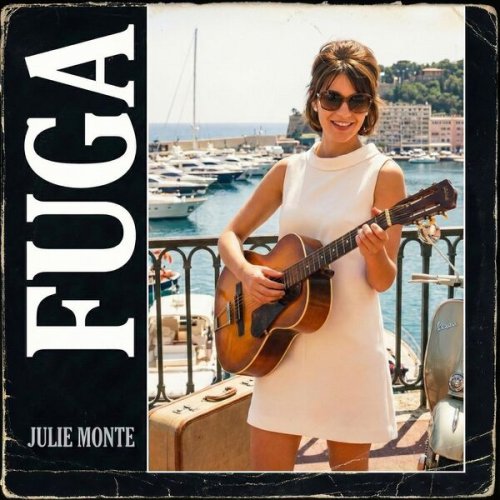
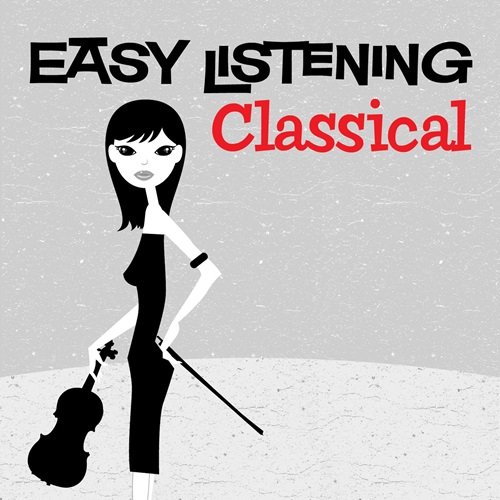
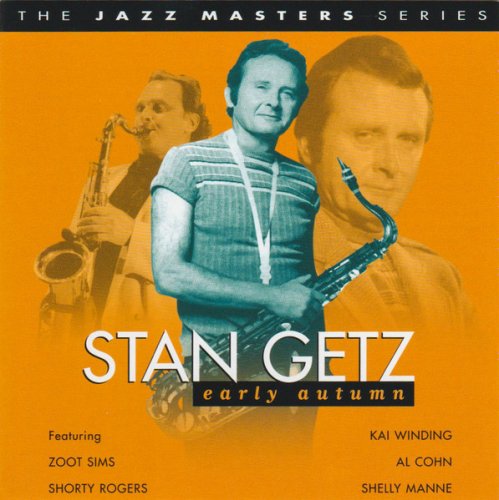


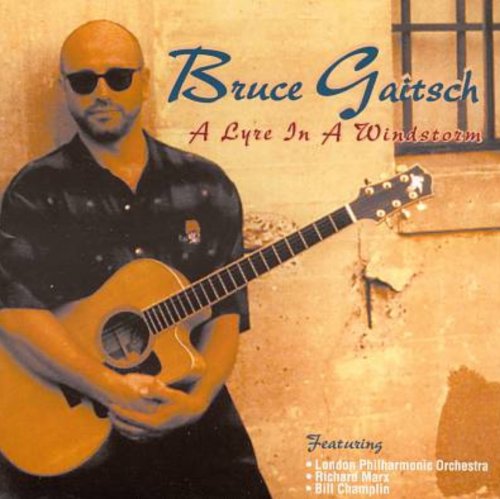
![Steve Davis - Eloquence (2009) [CDRip] Steve Davis - Eloquence (2009) [CDRip]](https://www.dibpic.com/uploads/posts/2026-01/1767988739_6.jpg)
